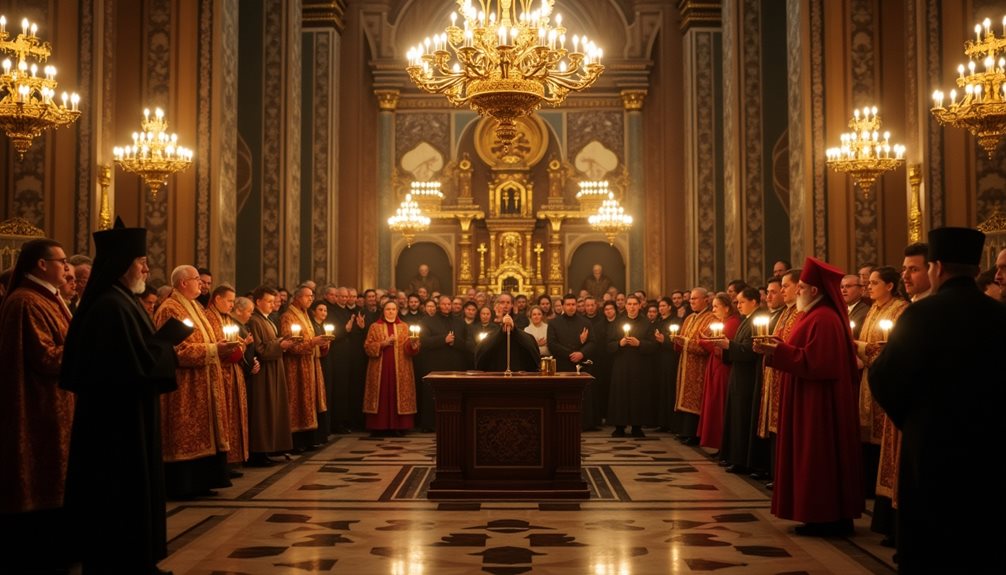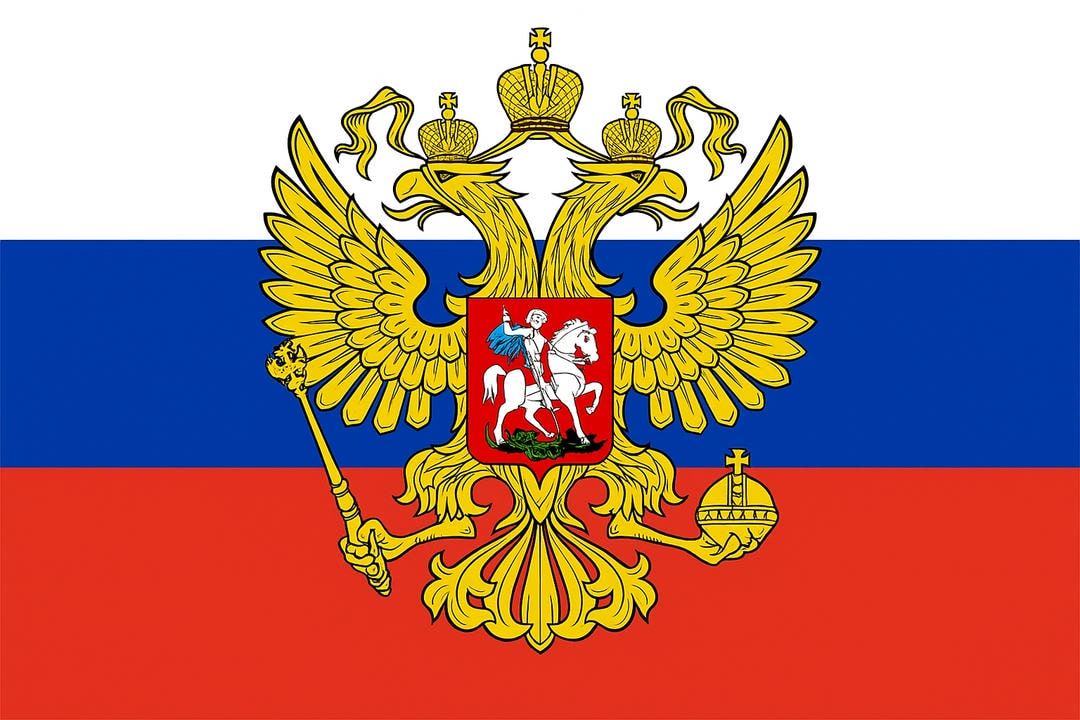The landscape of Russian libraries showcases a rich cultural and intellectual heritage, with institutions like the National Library of Russia and the Russian State Library leading the way. These esteemed establishments not only maintain extensive collections but also serve as vital centers for community engagement and education. They promote digital literacy, connecting historical and contemporary literary traditions, and play a crucial role in shaping the intellectual landscape of Russian society today while adapting to the demands of the digital age.
Historically, libraries have been central to Russian culture and education, facilitating academic pursuits and preserving the nation’s literary heritage. Today, they continue to evolve, meeting the needs of a society that values learning and intellectual growth.Russian libraries foster a deep appreciation for literature and learning, significantly impacting the nation’s cultural and educational framework. Renowned for their architectural beauty, these institutions are more than just book repositories; they are key players in cultural preservation.
They actively engage in community outreach, promoting digital literacy alongside traditional education. Libraries host literary festivals that celebrate Russia’s rich literary heritage and stimulate public interest in reading. These events bridge the gap between authors and readers, nurturing a vibrant literary community.Through these diverse roles, Russian libraries remain essential in advancing education, culture, and community engagement across various populations.

National Library of Russia (Saint Petersburg)
The National Library of Russia, located in Saint Petersburg, is a key cultural institution, established in 1795 as the Imperial Public Library. Over its history, it has changed names and functions in response to shifts in Russian society.
Collections and Resources
Currently, it holds over 36 million items, including invaluable manuscripts, serving as a vital resource for scholars and researchers globally. The library’s architecture combines classical and modern styles, creating an environment conducive to literary preservation. Its extensive collections include rare documents critical to Russian history.In recent years, digital archives have expanded access to these resources, allowing a global audience to engage with its collections. The library also emphasizes community outreach through educational programs and exhibitions that deepen public understanding of its holdings.
Historical Significance and Community Engagement
As one of Russia’s oldest institutions, it has played a significant role in cultural preservation and the promotion of literacy since its inception under Catherine the Great. Its evolution reflects broader historical changes in Russia, transitioning from the Imperial Public Library to the State Public Library during the Soviet era, and finally adopting its current name after the dissolution of the Soviet Union.With a commitment to both preservation and accessibility, the National Library of Russia remains integral to the academic and cultural landscape of the nation. It actively promotes literacy and lifelong learning through literary festivals and collaborations with local and international institutions.The library’s impressive collection not only safeguards historical texts but also facilitates research by providing extensive resources and expertise. Through its digital initiatives, it ensures that these cultural artifacts are preserved for future generations while remaining accessible to today’s scholars and the public.
Russian State Library (Moscow)
Established in 1862, the Russian State Library in Moscow, formerly known as the Lenin State Library, is the largest library in Russia, boasting a remarkable collection of approximately 47 million items. This institution serves as a vital resource for scholars and researchers, playing a significant role in both national and international library communities.
Architectural and Cultural Significance
The library is renowned for its iconic reading rooms and stunning architecture, which combines neoclassical and modernist elements. This architectural grandeur not only enhances its aesthetic appeal but also reflects its historical significance and commitment to cultural preservation. The design of the library promotes a harmonious blend of classical styles with contemporary functionality, making it an inviting space for visitors and scholars alike.
Digital Literacy and Community Engagement
In addition to its vast physical collections, the Russian State Library actively promotes digital literacy, ensuring that modern technological advancements complement its historical assets. The library’s initiatives include educational programs tailored to various age groups, workshops, and community outreach efforts designed to foster a love for reading and learning. These programs bridge traditional knowledge with modern information dissemination methods.
Commitment to Cultural Preservation
The library’s dedication to preserving Russia’s rich literary heritage is evident through its extensive collection of historical manuscripts and documents. By safeguarding these invaluable resources, the Russian State Library not only contributes to cultural preservation but also enhances public access to Russia’s literary history. Through literary festivals and cultural exhibitions, it fosters a vibrant dialogue that connects diverse audiences with the nation’s literary legacy.
Dostoevsky Library (Moscow)
Dostoevsky Library in Moscow holds a prominent cultural position, named after the renowned Russian author Fyodor Dostoevsky. His literary contributions continue to influence writers and readers around the globe.
As a cornerstone of literary heritage, the Dostoevsky Library plays a vital role in preserving and promoting Russian literature and intellectual thought. The library’s extensive collection embodies Russia’s rich literary history and serves as a public resource for individuals seeking to explore the depth of Russian narrative art. Its commitment to educational initiatives fosters a well-informed community through programs and workshops that enhance literary appreciation. Regular events encourage dialogue among literary enthusiasts, scholars, and the general public, reinforcing its cultural importance.
Community Engagement
The library actively engages with the community by hosting a variety of activities, including regular readings, language clubs, and diverse events aimed at fostering cultural exchange. Notable events include book fairs that showcase local and international authors, as well as literary festivals featuring panels and discussions. Author events allow readers to connect with their favorite writers, while community workshops provide learning opportunities that strengthen local bonds.
In response to evolving patron needs, the Dostoevsky Library has embraced modern adaptations, integrating digital resources and contemporary programming. This includes a robust online catalog and e-book lending services, enhancing access to information. Strategic partnerships with educational institutions and tech companies further enrich resources available to patrons. The library also focuses on technology integration initiatives that offer workshops and training sessions aimed at bridging the digital divide.
Balancing Tradition and Innovation
The Dostoevsky Library effectively balances traditional library functions with contemporary urban culture. Its architectural design reflects a blend of historical elegance and modern aesthetics, creating an inviting atmosphere for patrons. Through innovative cultural programming, the library serves as a dynamic hub that invites diverse audiences into its space, ensuring it remains a vibrant part of Moscow’s cultural landscape.
Turgenev Library and Reading Room (Moscow)
The Turgenev Library and Reading Room in Moscow is a significant institution honoring the esteemed writer Ivan Turgenev. Inaugurated as the first public reading room in Moscow that offered free access, it set a vital precedent for the availability of literature and knowledge to the public. Established in the late 19th century, the library has played a crucial role in Russia’s cultural and intellectual history, becoming a sanctuary for intellectuals during times of political upheaval.
Cultural Significance and Community Engagement
The Turgenev Library serves as a beacon of Turgenev’s influence on Russian literature, celebrating his legacy through various literary festivals and events that engage both scholars and the general public. Its extensive collection reflects Russia’s rich literary heritage, while community outreach initiatives foster a deep appreciation for literary arts. The library hosts numerous cultural and educational events, promoting inclusivity and connecting diverse groups over shared intellectual pursuits.
Modern Accessibility and Digital Innovation
Located centrally in Moscow, the library exemplifies modern inclusivity with its commitment to accessibility. It offers digital resources and online catalogs, ensuring that all patrons can engage with its offerings regardless of ability or background. Community programs utilize technology to enhance learning experiences, making the library a model of contemporary cultural engagement. Through volunteer initiatives and interactive platforms, the Turgenev Library continues to adapt to meet the evolving needs of its community, solidifying its status as a vital hub for literary and cultural exchange.
Other Notable Libraries
In exploring the landscape of notable libraries across Russia, several institutions stand out for their unique collections and contributions to cultural enrichment.
The Eisenstein Motion Picture Art Library offers a specialized focus on cinematic arts, while the Russian State Youth Library caters to a younger demographic with diverse literary resources.
Additionally, the Photo Library and Prospekt Library provide specialized collections that support both academic research and public engagement, enhancing the nation’s intellectual and cultural fabric.
Eisenstein Motion Picture Art Library
Among the distinguished libraries in Russia, the Eisenstein Motion Picture Art Library holds a unique place as a treasure trove dedicated to film and cinematic arts. Named after Sergei Eisenstein, a pioneer of visual storytelling, this library is a tribute to his profound influence on the cinematic world.
It houses extensive cinematic archives, preserving films and materials critical to understanding the evolution of film as an art form. The library plays a crucial role in film preservation, ensuring that Russia’s rich cultural heritage in cinema is accessible to scholars, filmmakers, and enthusiasts alike.
Russian State Youth Library
The Russian State Youth Library captivates visitors with its dynamic approach to engaging young readers and fostering a lifelong love for literature.
This esteemed institution is renowned for its innovative youth programs designed to stimulate curiosity and enhance learning. By embracing digital initiatives, the library provides access to a wide array of educational resources, guaranteeing that young patrons can explore diverse subjects at their own pace.
Community outreach efforts further extend the library’s influence, encouraging participation in cultural events that highlight Russia’s rich literary heritage.
The library’s commitment to inclusivity and education guarantees it remains an essential resource for young individuals seeking knowledge and inspiration.
Photo Library
Boasting an extensive collection of visual archives, the Photo Library represents a unique segment of Russia’s esteemed library network, offering a window into historical and contemporary visual narratives.
This distinguished institution curates a rich array of photo exhibitions that showcase both the country’s historical collections and modern photographic art. Emphasizing accessibility and education, the library has developed thorough digital archives, enabling users worldwide to explore its vast resources online.
To foster public engagement, the Photo Library organizes community workshops, providing hands-on opportunities for photography enthusiasts to enhance their skills. Additionally, interactive displays within the library allow visitors to explore deeper into the stories behind the images, making the experience both educational and immersive, further solidifying its role as a cultural cornerstone.
Prospekt Library
Standing as a representation of Russia’s rich literary tradition, Prospekt Library offers an unparalleled collection of literary and academic resources.
The library’s prospekt architecture is a harmonious blend of classical and modern design, reflecting the dynamic evolution of Russian culture. Its shelves are adorned with works from local authors, providing a platform to showcase regional literary talent.
Prospekt Library actively engages the community through innovative programs that promote reading and learning across all ages. Additionally, its digital outreach initiatives guarantee that resources are accessible beyond physical walls, embracing the digital age.
Historical exhibits within the library provide insightful glimpses into Russia’s storied past, enriching the visitor experience.
Prospekt Library remains an essential cultural hub, nurturing literary appreciation and community engagement.
Importance of libraries in Promoting Russian Literacy and Culture
Frequently regarded as cultural landmarks, libraries in Russia play a significant role in promoting literacy and cultural enrichment across the nation.
These institutions are at the forefront of literacy initiatives, ensuring that diverse educational resources are accessible to citizens from all walks of life. Through extensive cultural programs, libraries engage communities in an array of activities that foster a deeper appreciation for Russian heritage and global cultures.
Community outreach efforts further enhance their impact by targeting underrepresented groups and bridging educational gaps. As the digital age progresses, libraries are also embracing digital access, offering online resources and virtual programs to expand their reach.
Collectively, these efforts underscore the vital role libraries have in fostering a literate, culturally-rich society in Russia.




